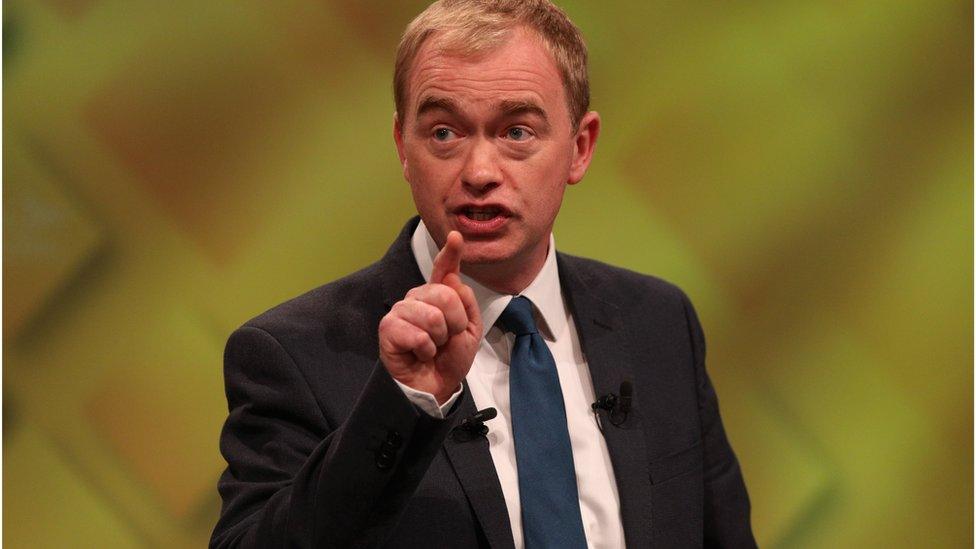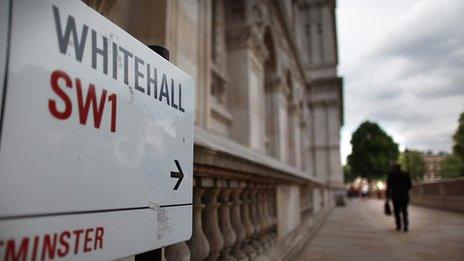Government Digital Service faces a brain drain
- Published

Ten senior civil servants left the Government Digital Service (GDS) in the year to April, the BBC has learned.
This has prompted concern as to why the service cannot hang on to its most experienced staff.
The GDS, which was set up within the Cabinet Office in 2011, helps to support the digital transformation of government, working with departments to introduce and improve online services.
An opposition MP has said the news is "alarming".
A BBC freedom of information request revealed that the GDS lost 10 senior civil servants - of deputy director level and above - across the 2015-16 financial year.
The service had 21 senior posts in total as of March 2016.
Of the 10 departees, it was not stated how many had moved to other areas of government, and how many had left the civil service entirely.
However, before 2015, just one civil servant of senior grade was recorded as having left the service.
MP fears
Tim Farron, leader of the Liberal Democrats, expressed concern at these departures.
"It should be deeply worrying to see some of the brightest talent in the civil service leaving public service to go and work in the private sector," he said.
"Ministers need to make sure that staff feel empowered and engaged, and at the moment it's clear that many civil servants feel neither."
The high number of senior civil servant exits has sparked alarm about the performance of a service at the forefront of civil service reform.
Daniel Zeichner, Labour MP for Cambridge and chairman of the all-party parliamentary group on data analytics, said: "At this critical time it is alarming to learn that significant numbers of key people are leaving the Government Digital Service.
"The sector is key to our competitiveness and future prosperity - we cannot afford to be losing key people at this important time."

Liberal Democrat leader Tim Farron says ministers must do more
The GDS's former executive director Mike Bracken left last September to become chief digital officer at the Co-operative Group, and several senior GDS officials have since joined him at the firm.
Since April this year, there have been further exits.
Stephen Foreshew-Cain, who took over from Mr Bracken as head of the service, was replaced by Kevin Cunnington, the former business transformation director general at the Department for Work and Pensions, in August.
Mr Foreshew-Cain has since joined Bracken at the Co-operative Group, as its new chief operating officer - digital.
Janet Hughes, programme director of the government's new identity checking service, Verify, left the service in August. Andy Beale, GDS's chief technology officer and Paul Maltby, GDS's director of data, will also be leaving.
Better news
Among more junior staff, the picture at GDS is more positive. The service has continued to expand, with the total number of staff employed at GDS HQ increasing from 135 in April 2012 to 387 at the end of April this year.
GDS Director General, Kevin Cunnington, said: "GDS has bolstered its headcount with greater numbers year-on-year since 2011.
"I am also making great progress in making sure we have a senior team to take us successfully into a new and exciting phase for GDS.
"In recent weeks, we have brought in Emily Ackroyd from Number 10 and Arif Harbott from the Ministry of Justice to the top team, and we are looking forward to working with departments to establish a more ambitious GDS than ever before."
- Published1 August 2016

- Published12 June 2013
